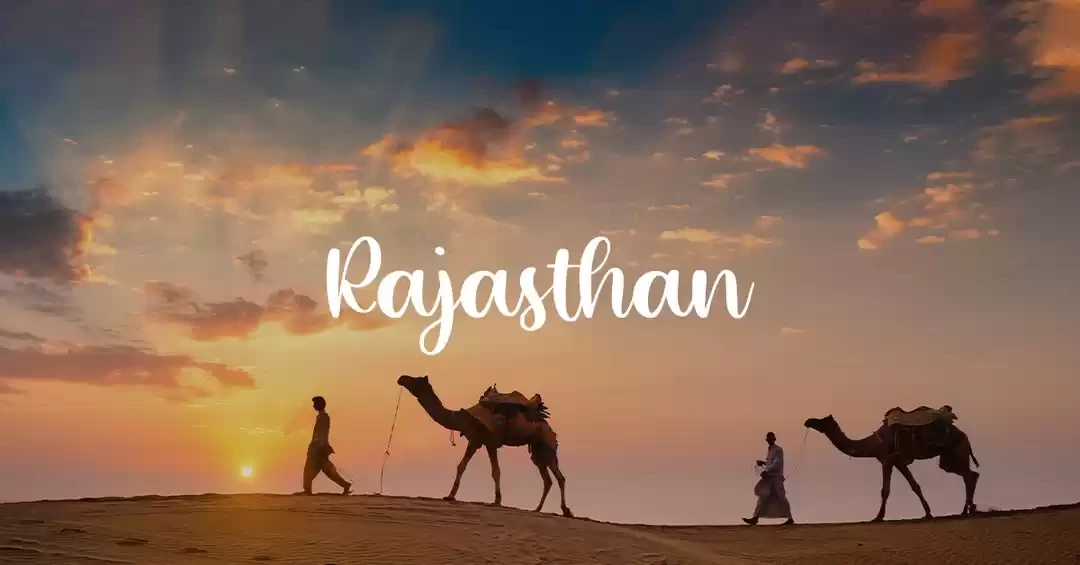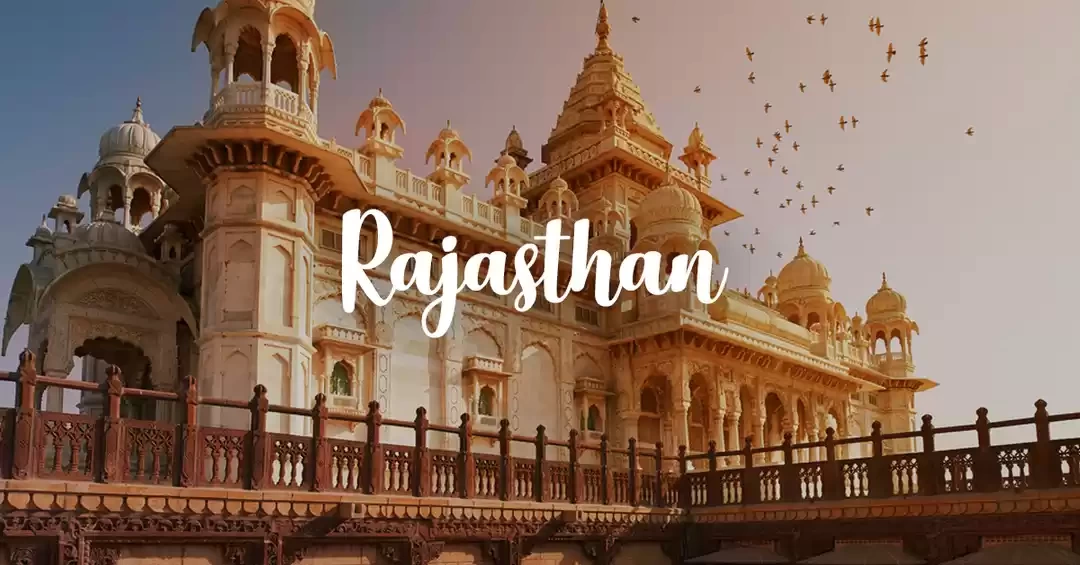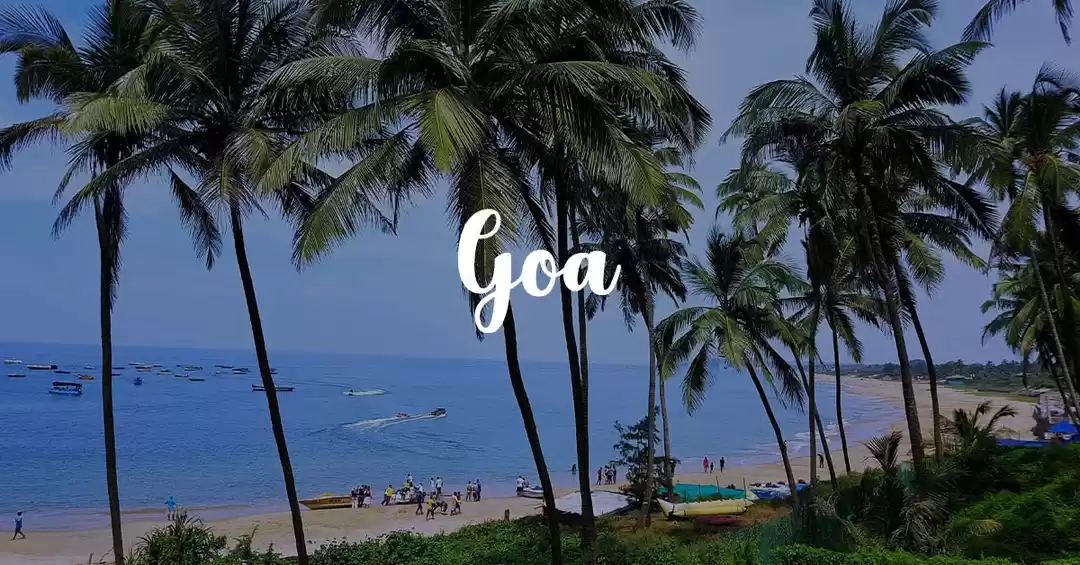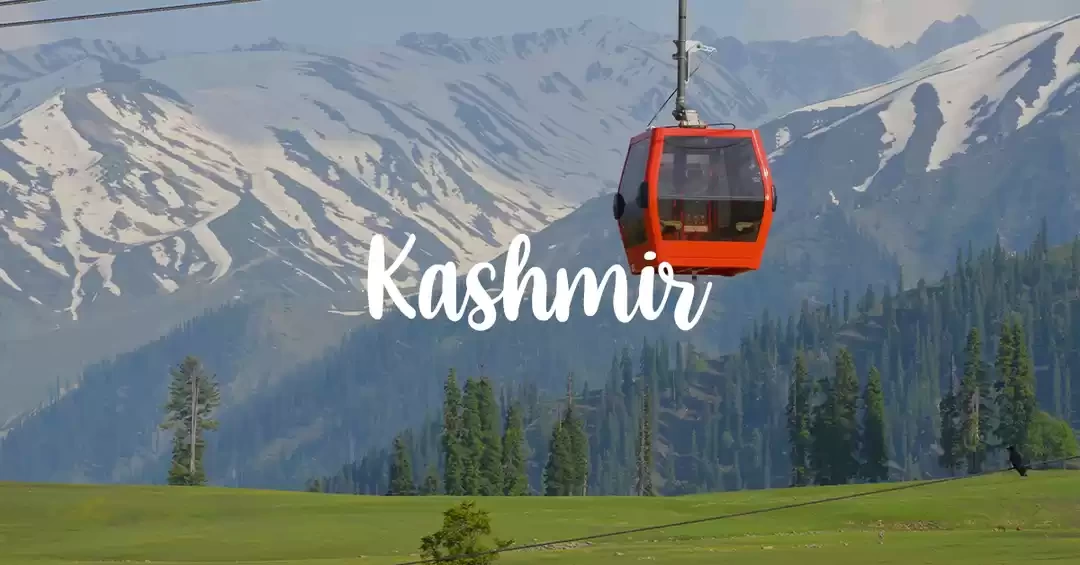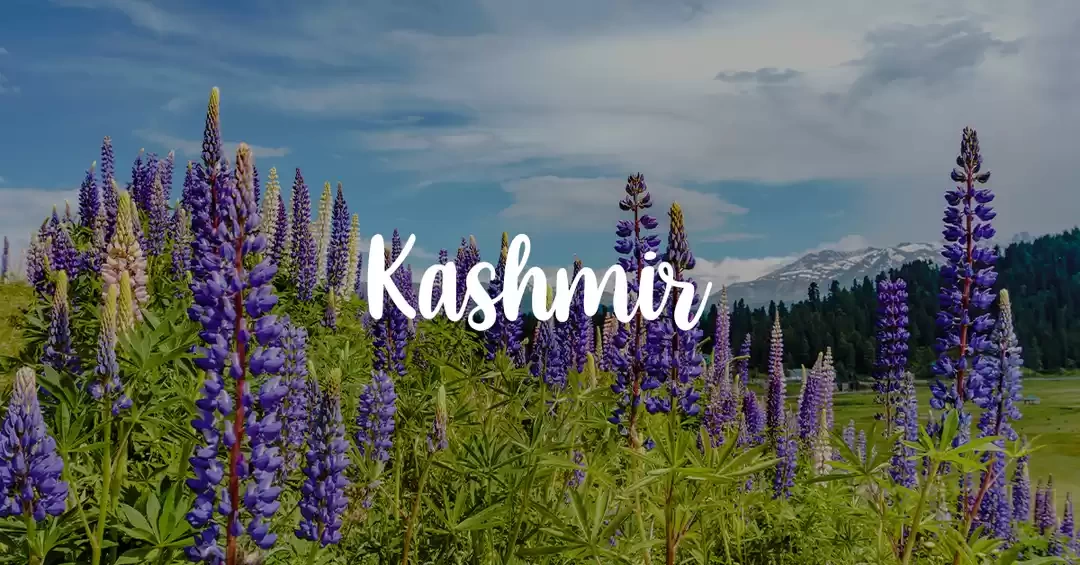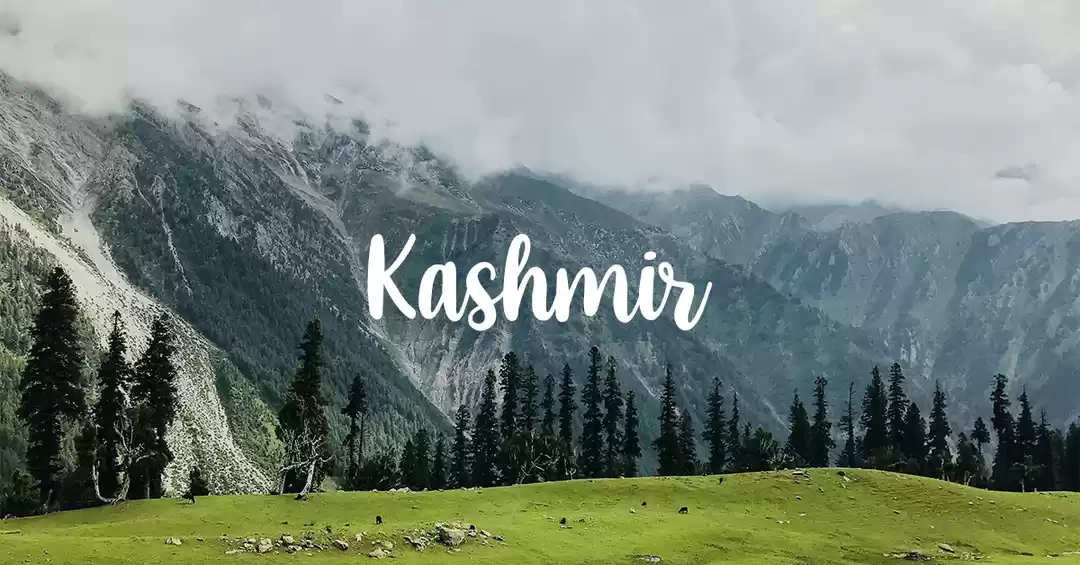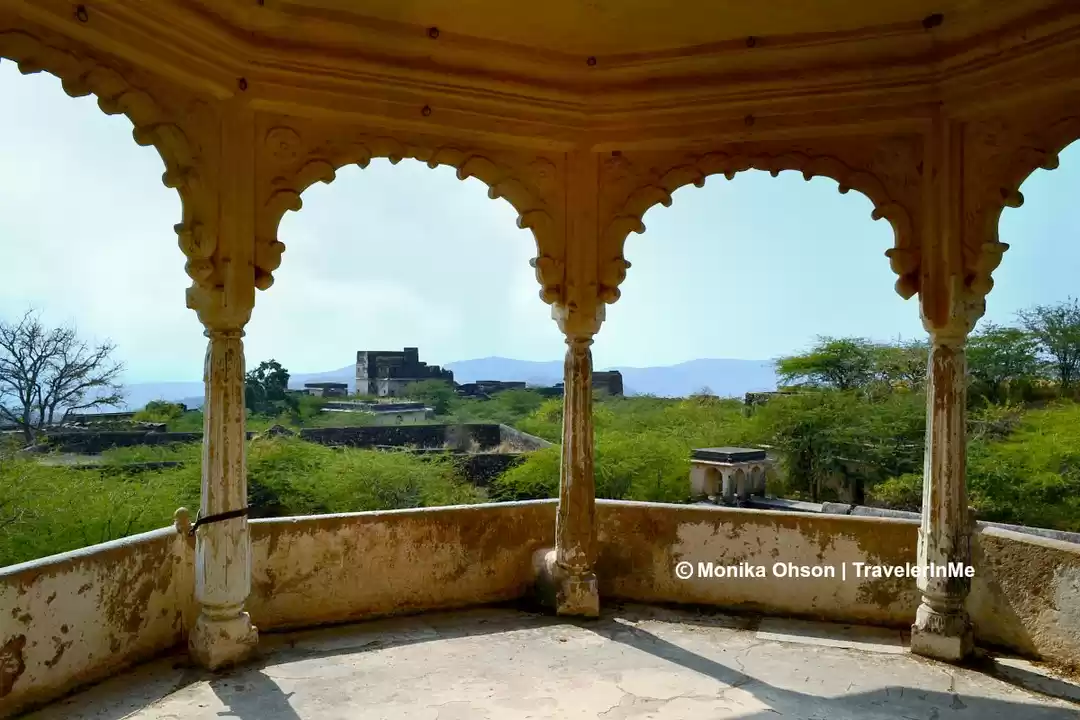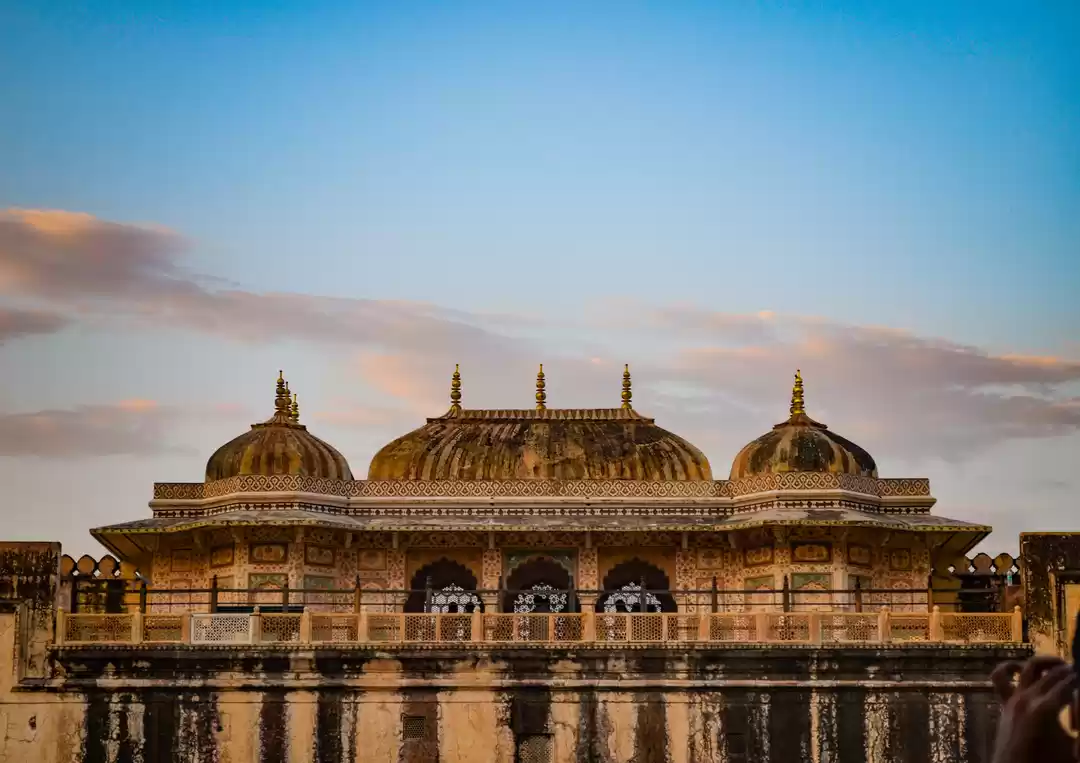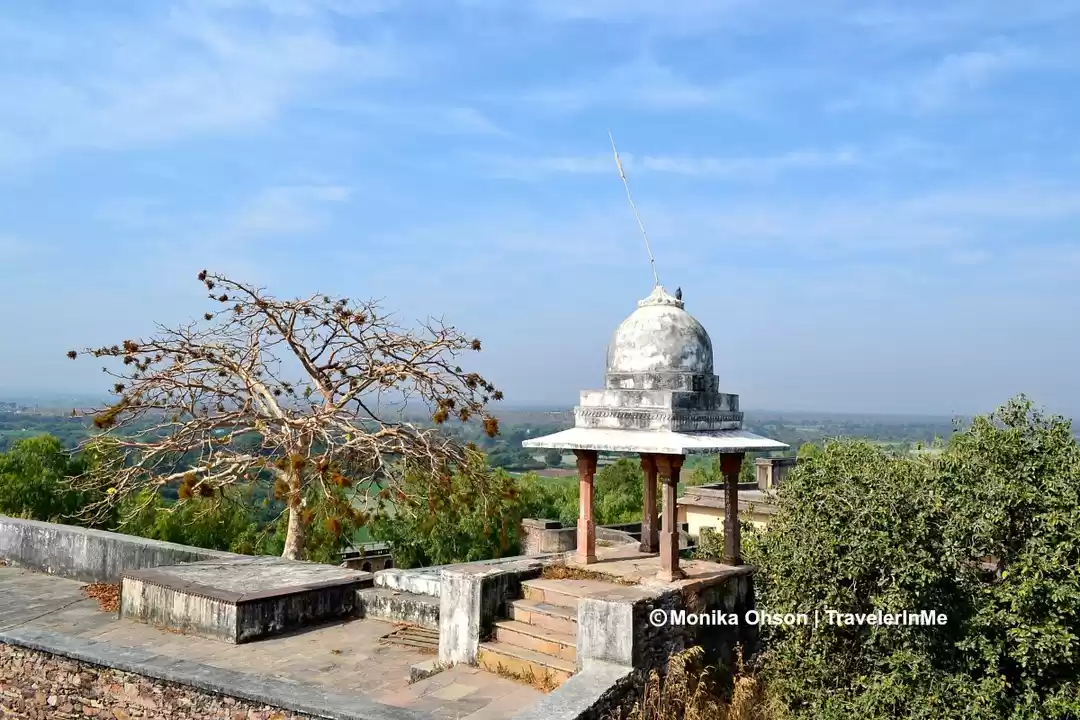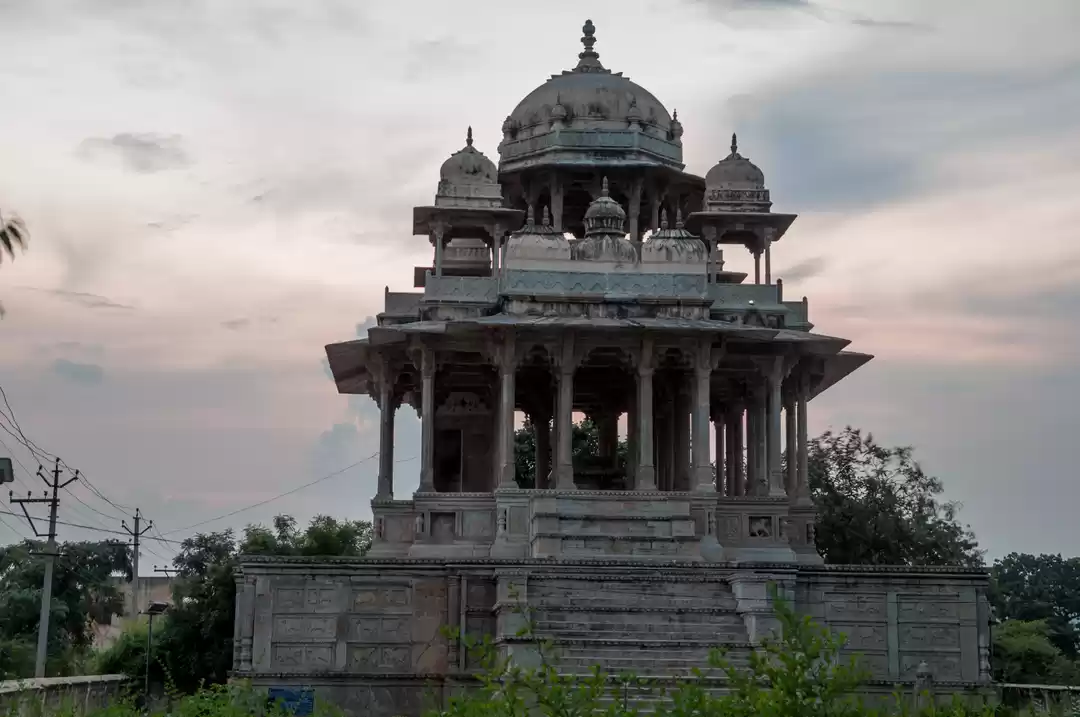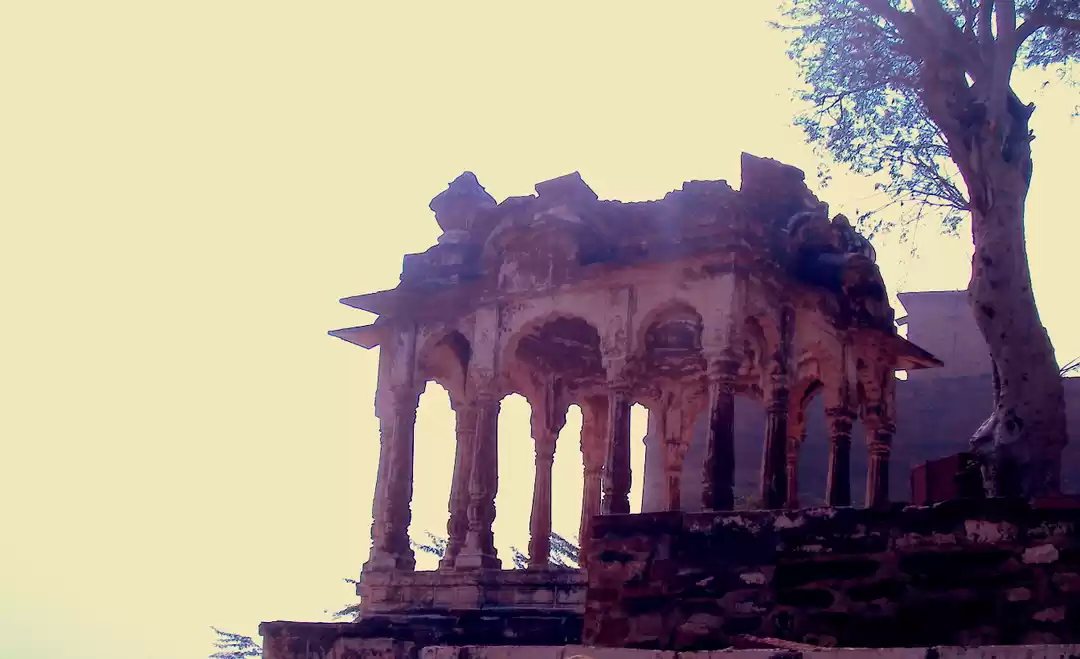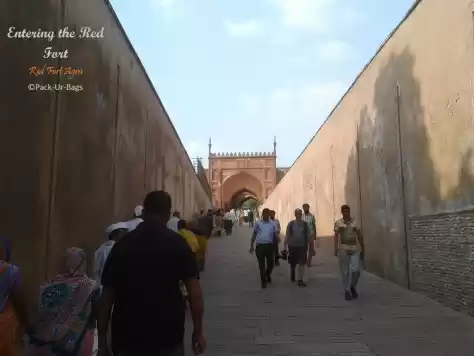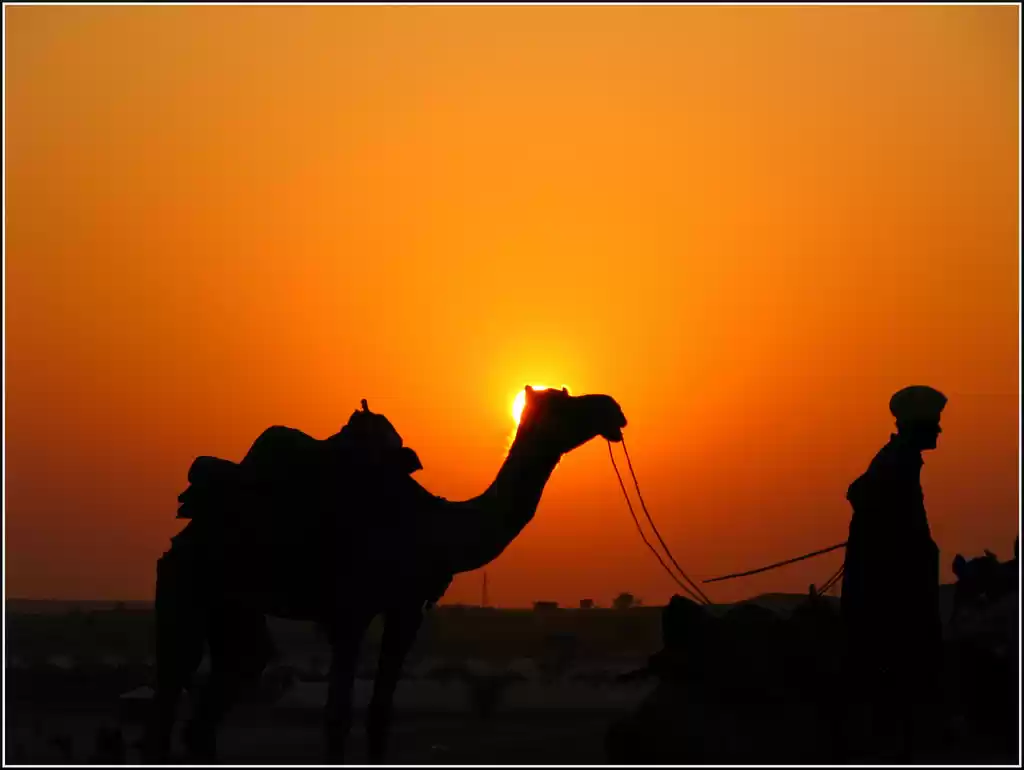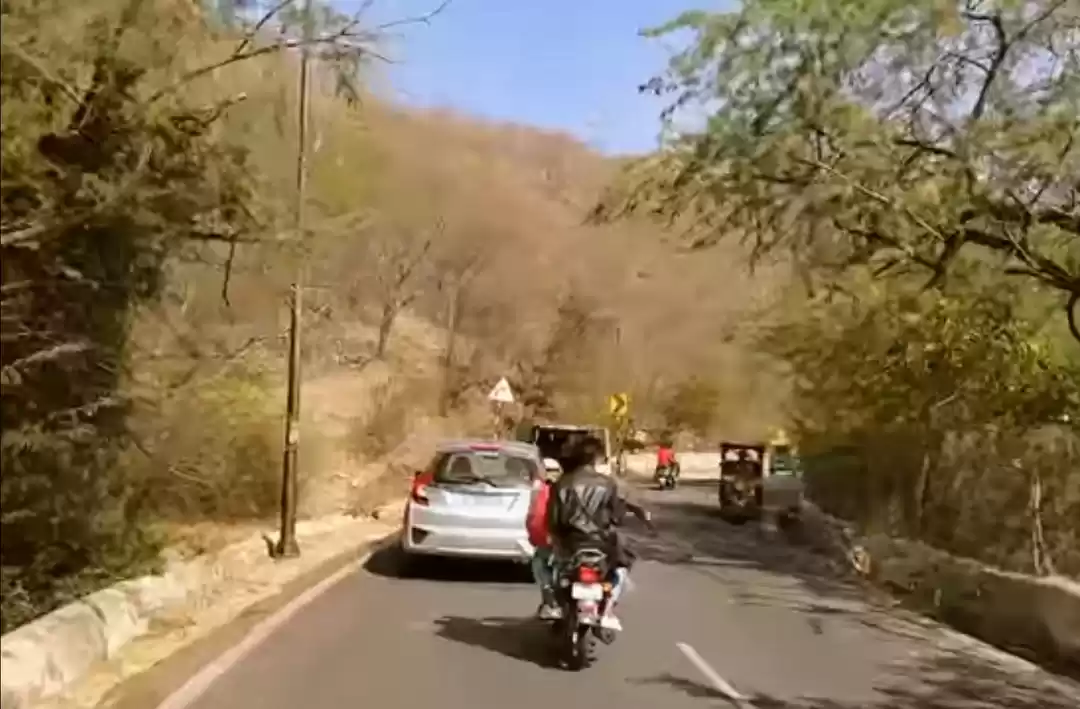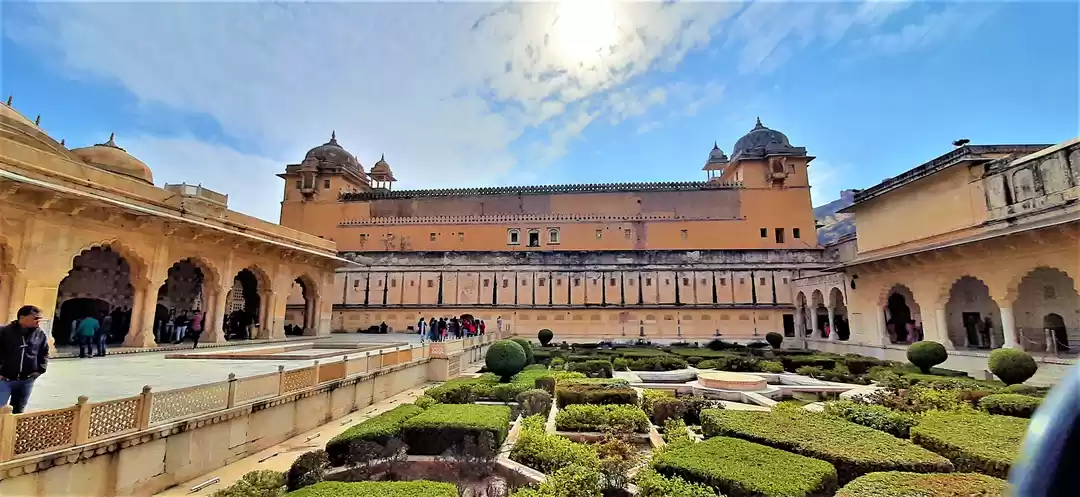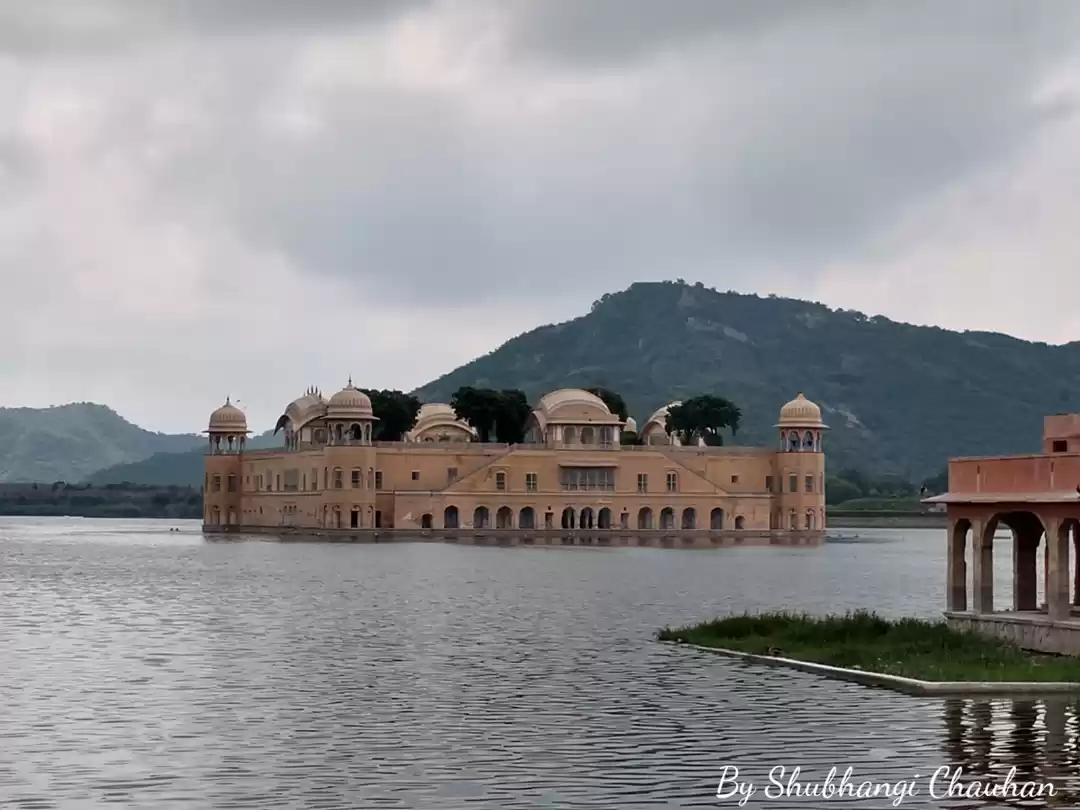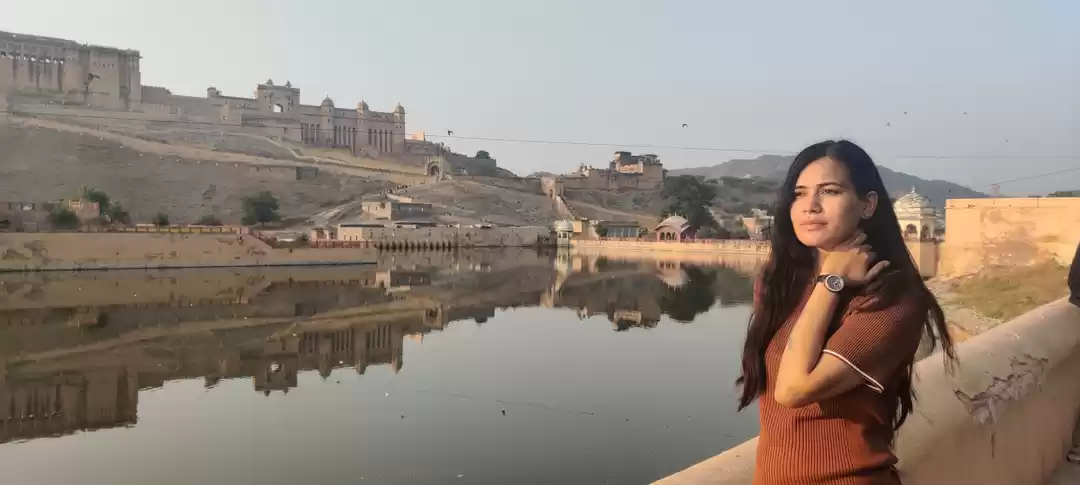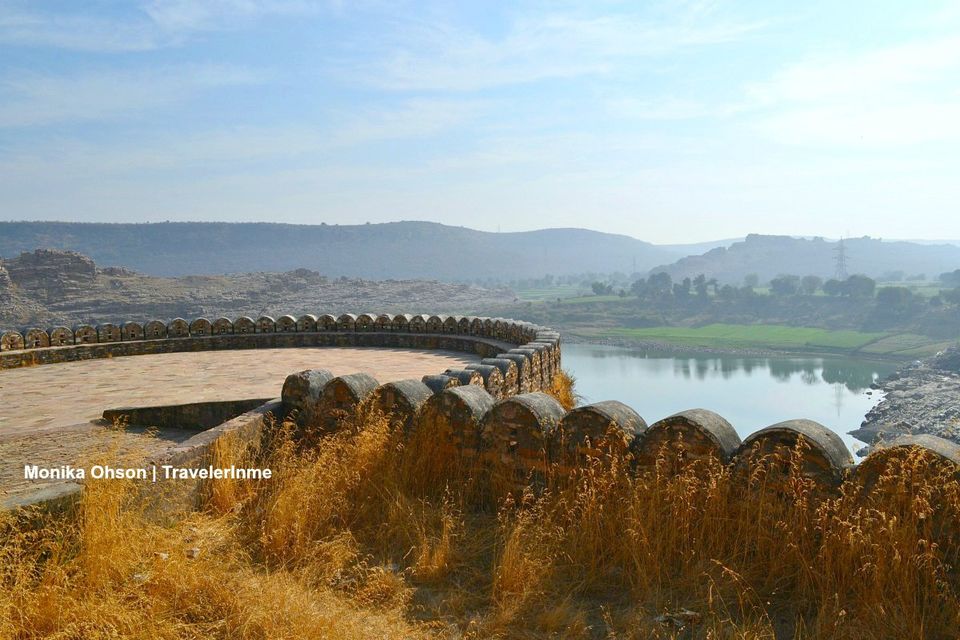
Forts & Palaces is one of the luring facts that help me narrow down my travel destination. If it is an unexplored beauty …..wow!
Hence, Jhalawar came in my travel radar for being unknown in the tourist circuit, and Gagron Fort being the undiscovered jewel. In 2013 it was included in the UNESCO World Heritage Site list, and we have a lot to thank for this. Prior to this the fort was neglected with over grown wild vegetation and illegal occupants. With UNESCO in the picture the fort is being restored to its splendor.
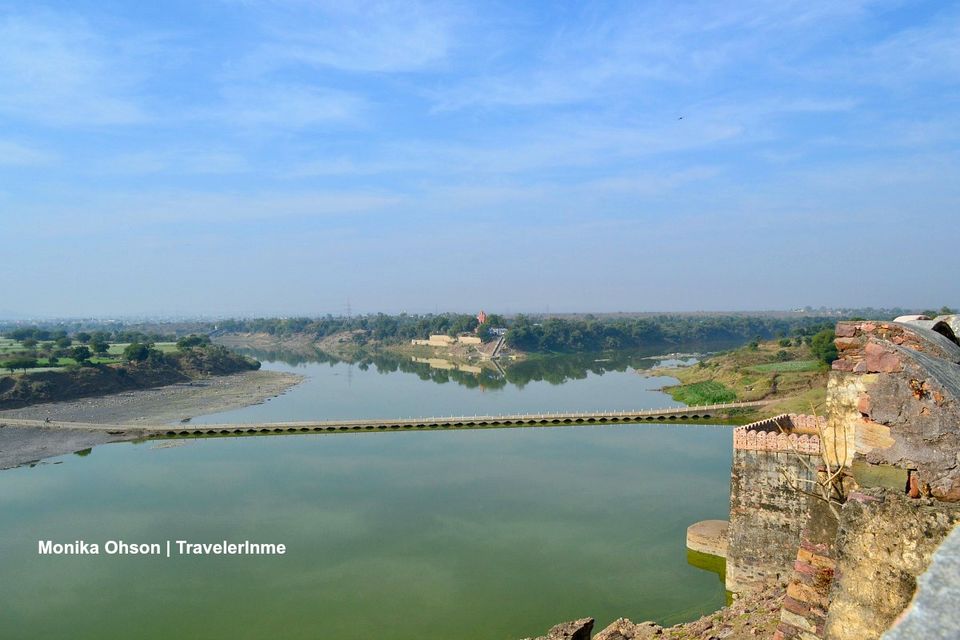
.
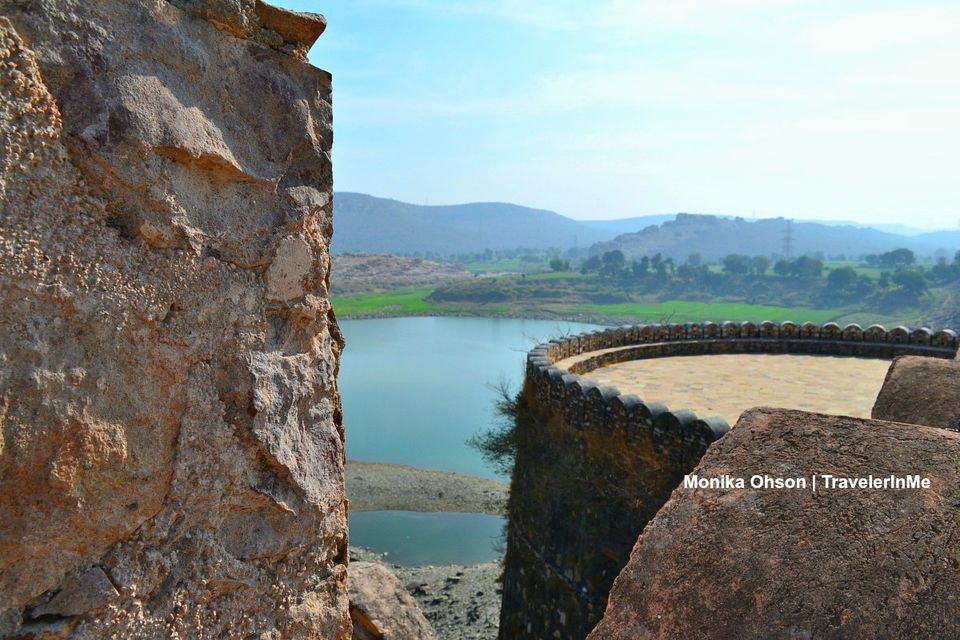
We had just 6-7 hrs to enjoy the hidden gems of the city and the day started at 8 am with the fort being the first destination. Located away from the city, its a wonderful example of a hill and water fort.
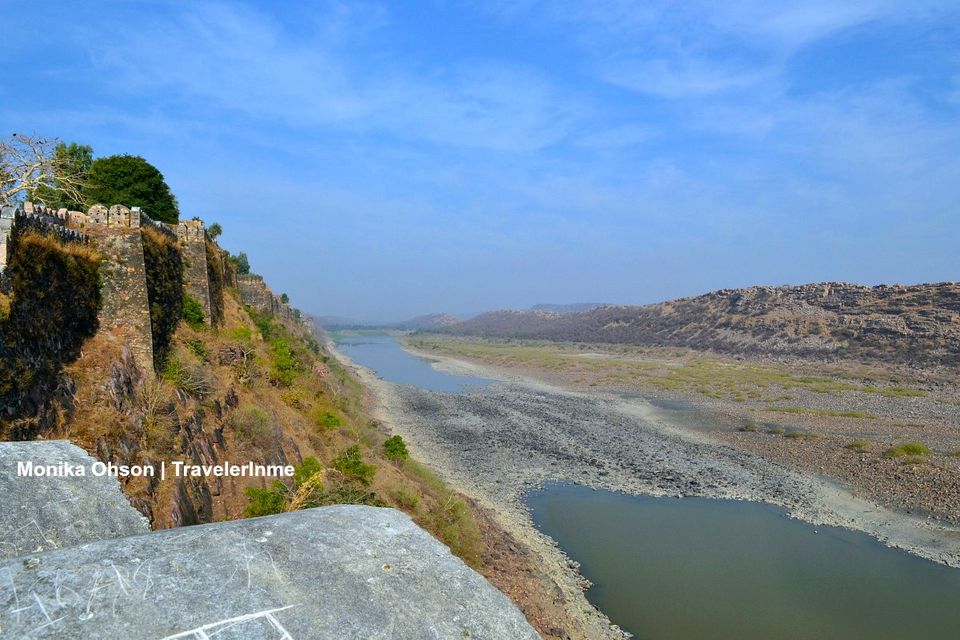
.
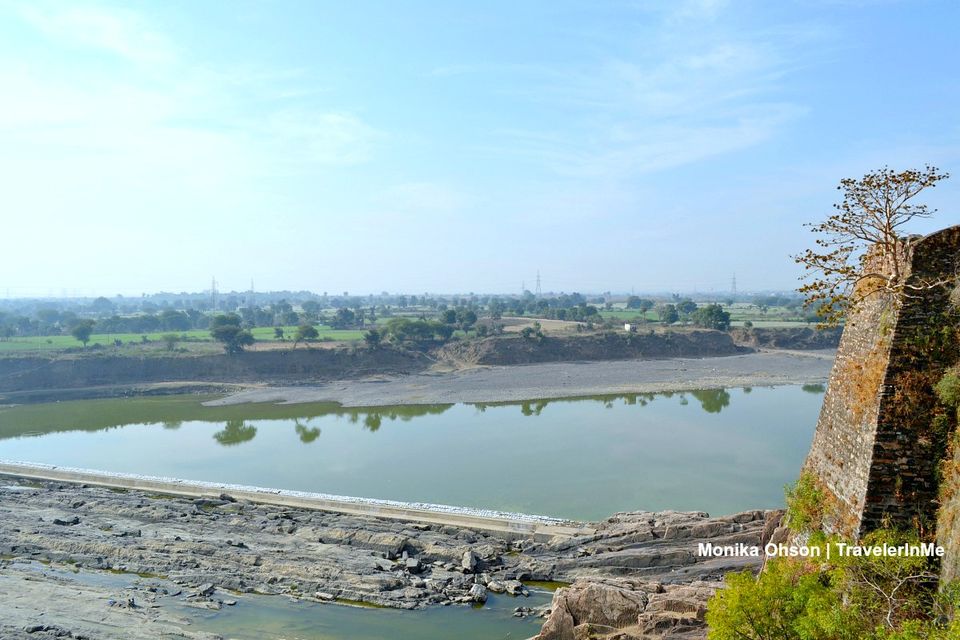
The making of the fort dates back to the 7th century though it saw its completion in the 14th century. It is one of the magnificent example of Rajput military hill architecture.
Gagron fort was established by King Bijaldev of the Doda / Parmara empire. As per legend, the place was also known as Galkangiri, after sage Garg Rishi who had successfully completed penance and meditation in the fort.
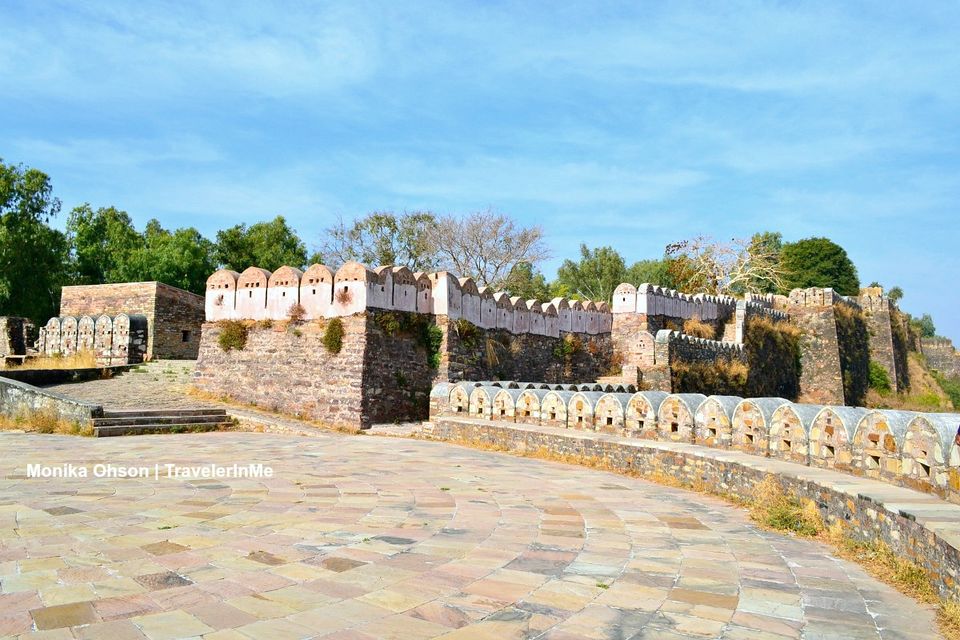
.
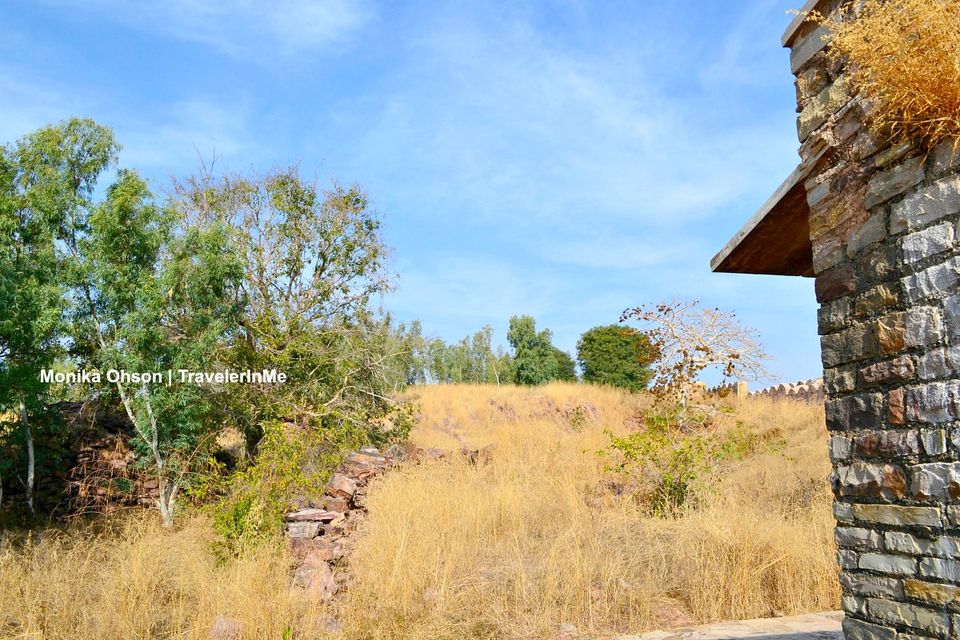
The fort has witnessed 2 major jauhars (‘Death over Dishonor‘ or mass self-immolation by women) and as many as 14+ battles between the Khinchi Emperors and Malwa Sultans. Some of the occupants of the fort were; Raja Achaldas Khinchi (emperor of Gagron), Sultan Hoshangshah of Malwawho (monarch of Mandu), Raja Palhandev (successor of Raja Achaladas Khinchi), Bahahdurshah (Sultan of Gujarat), Bhimkaran, Mahmud Khilji, Rana Kumbha, Emperor Akbar. Finally in 16th century, the fort came under the rule of Raja Mukund Singh of Kota. Thereafter, Gagron became a division of the Kota region until 1948.
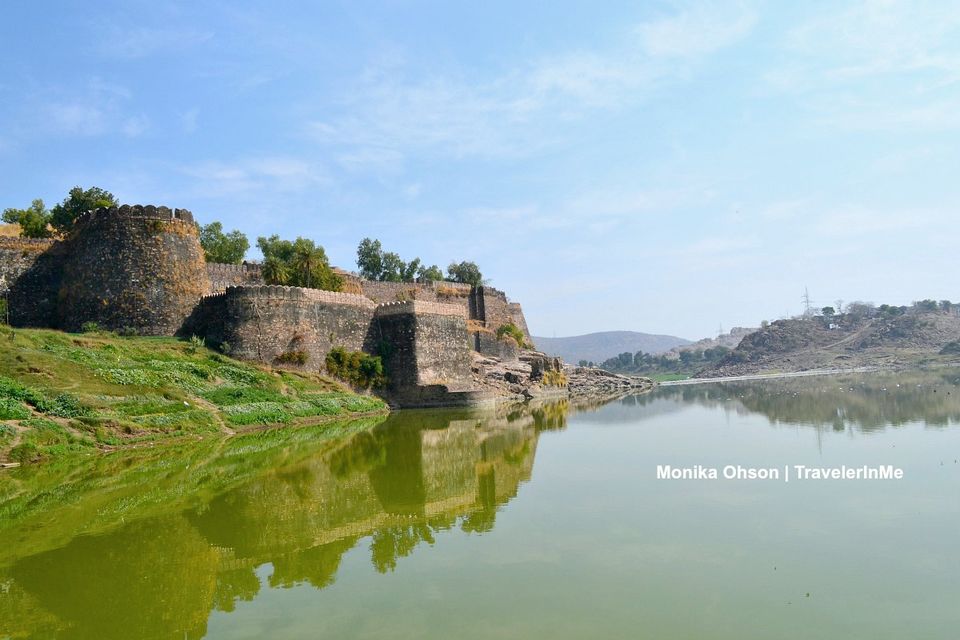
The Gagron Fort is surrounded by river Ahu, river Kali Sindh and a massive conduit or moat. Kali Sindh is the biggest river flowing in the Malwa region and joins river Chambal in its downstream. The rear of the fort is surrounded by the Mukundara hill & forest of the Vindhya range. It is one of the rare forts that is protected by van (forest) & jal (water). The fort is well known for being built without a foundation and a construction that takes support from the hills. Another interesting feature of the fort is that it has 3 ramparts instead of the usual 2.
As per historical facts, in the early years the fort was used for execution of the enemies.
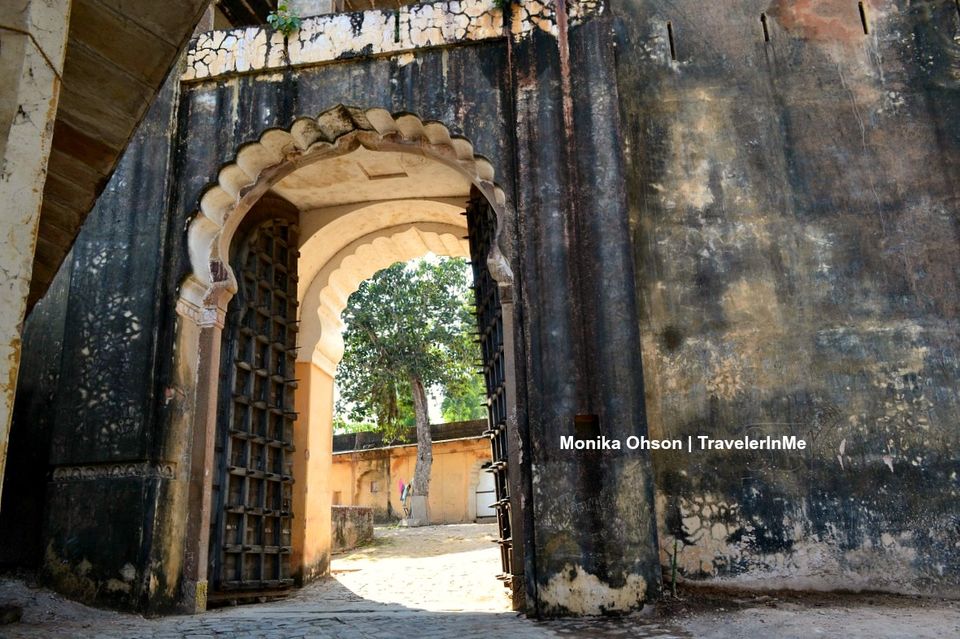
The fort has two outer main gates, one leading to the waters and the other to the mountains. The main pols (gates) within the fort are Ganesh Pol, Bhairav Pol, Suraj Pol.
We were the only tourists at that time and witnessed restoration work going on in full swing. I am sure there would be entry charges though it was a free walk for us then. With no guide we did our best to understand the structures within the fort, and in this case google too was not of much help.
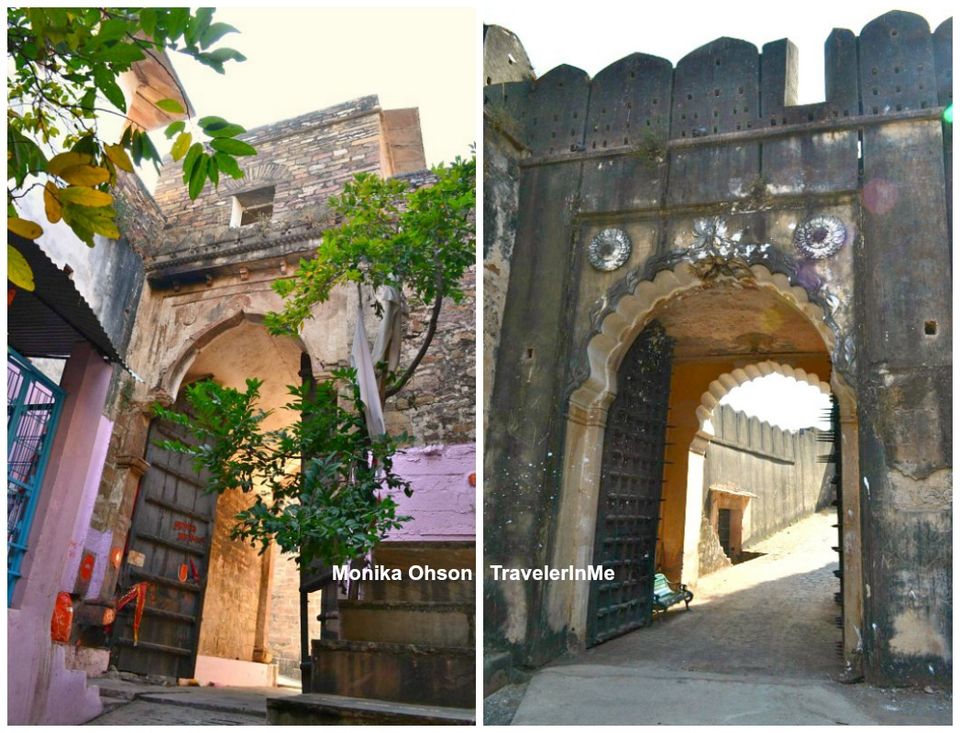
We spent a good time enjoying the vastness of and the views from the fort’s bastion……even walked on the wall-walks of the ramparts along them. The wild (now trimmed) vegetation enhanced the natural beauty of the fort’s landscape.
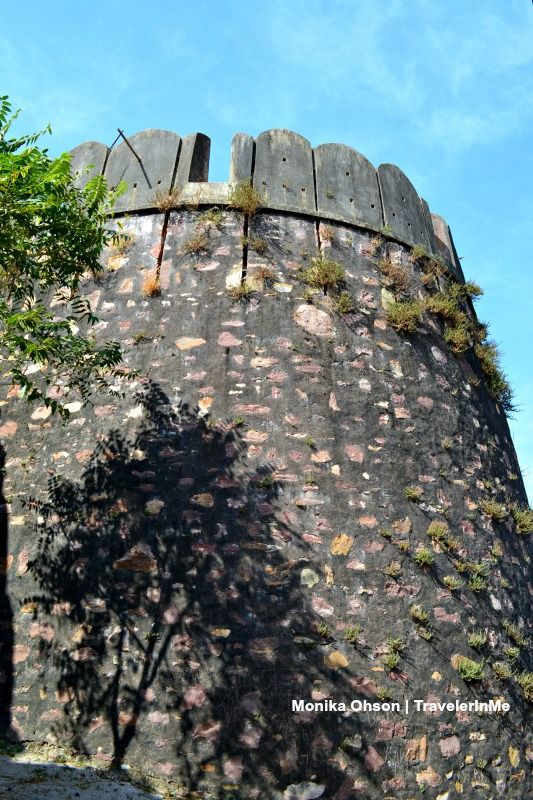
We had taken our car inside the fort premises though not sure if the same would be allowed once fully open to the public post restoration. This helped us move from one structure to another with ease, as the fort is massive.
Once through the bastion we moved to another structure, probably the Janaana Mahal. The structure was simple, functional and bereft of any ornamentation. Some rooms were large, well ventilated and interconnected.
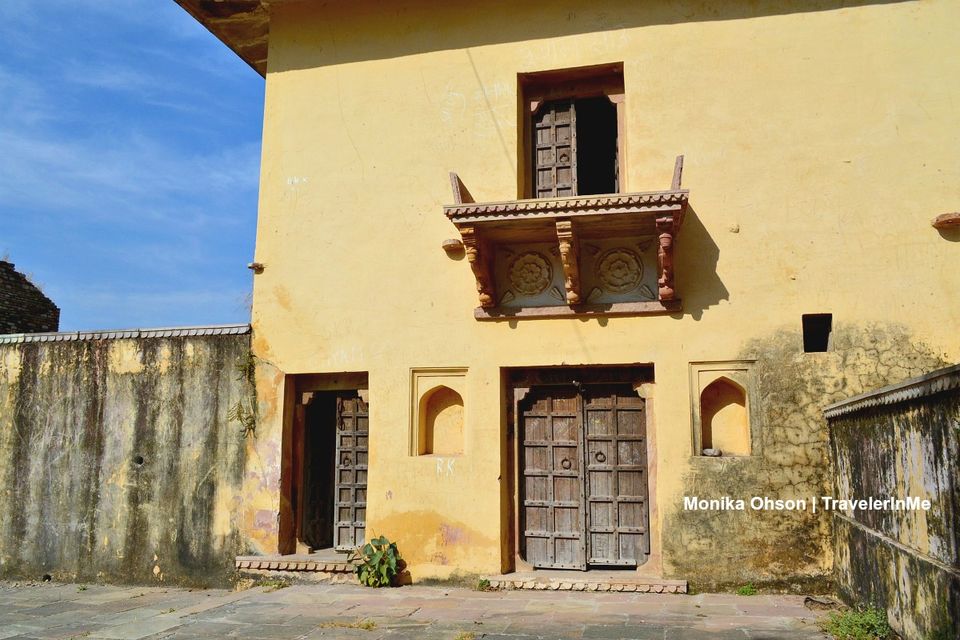
.
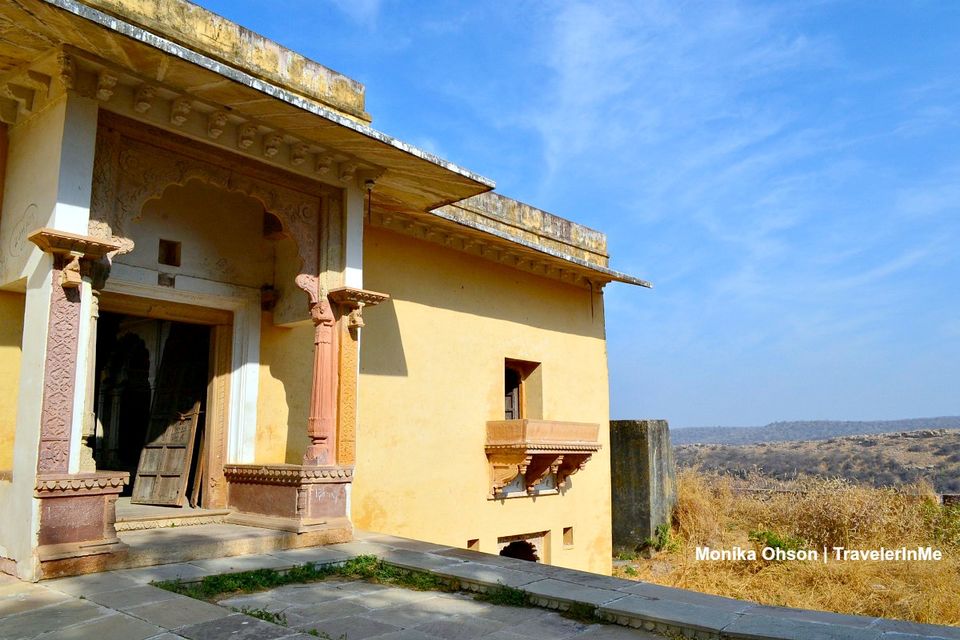
.
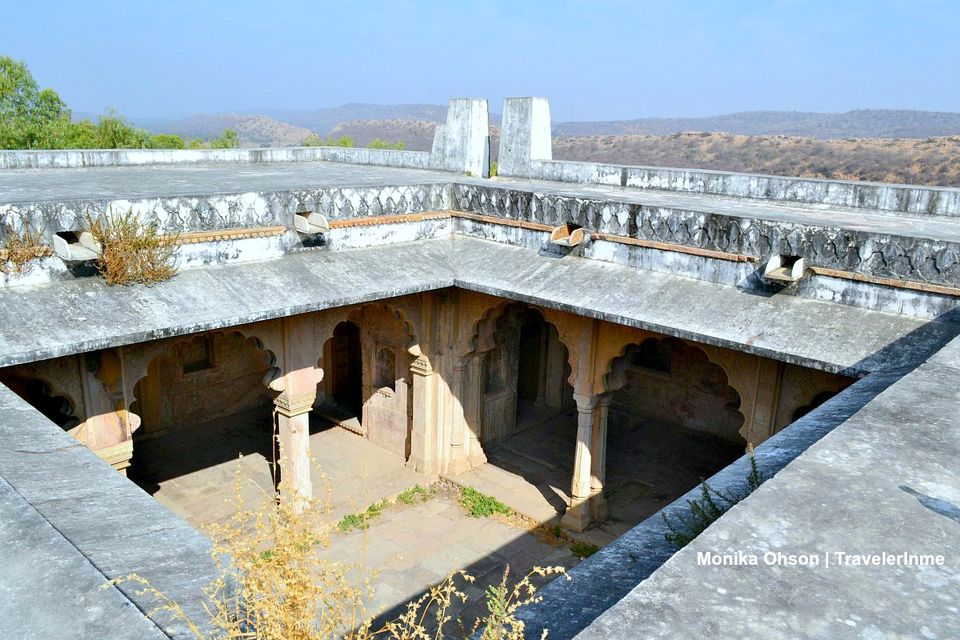
.
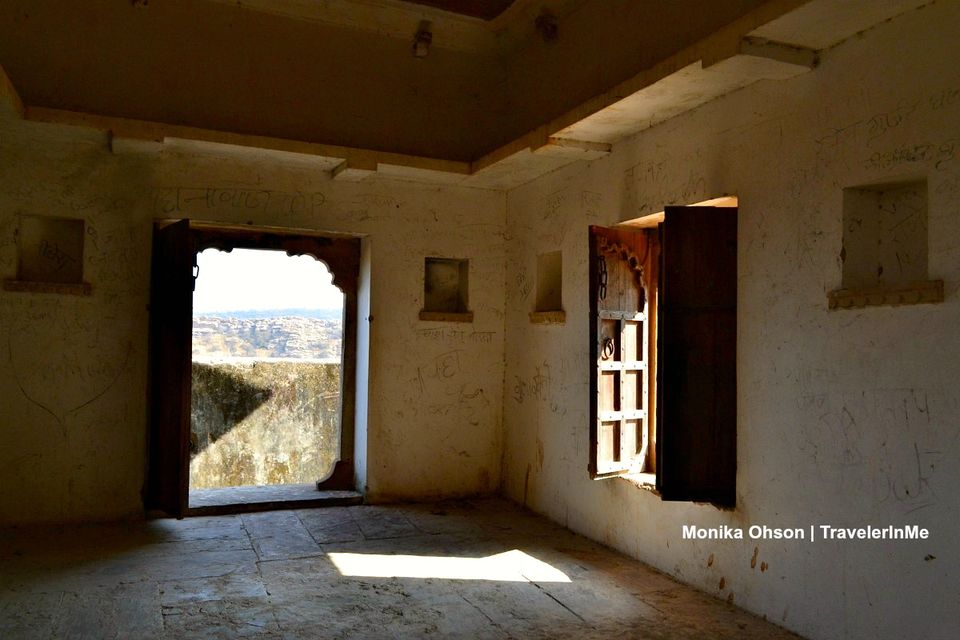
.
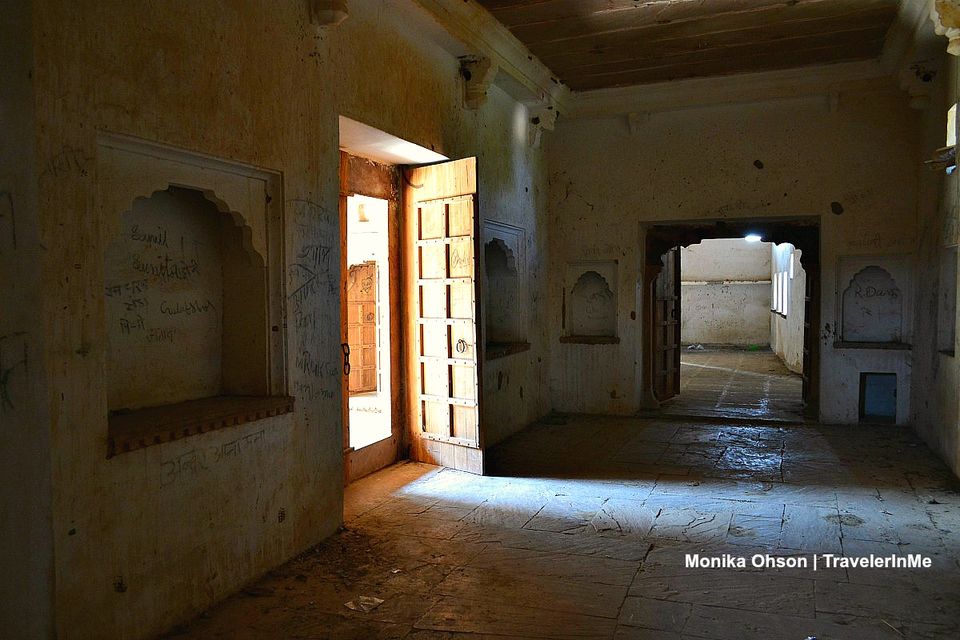
.
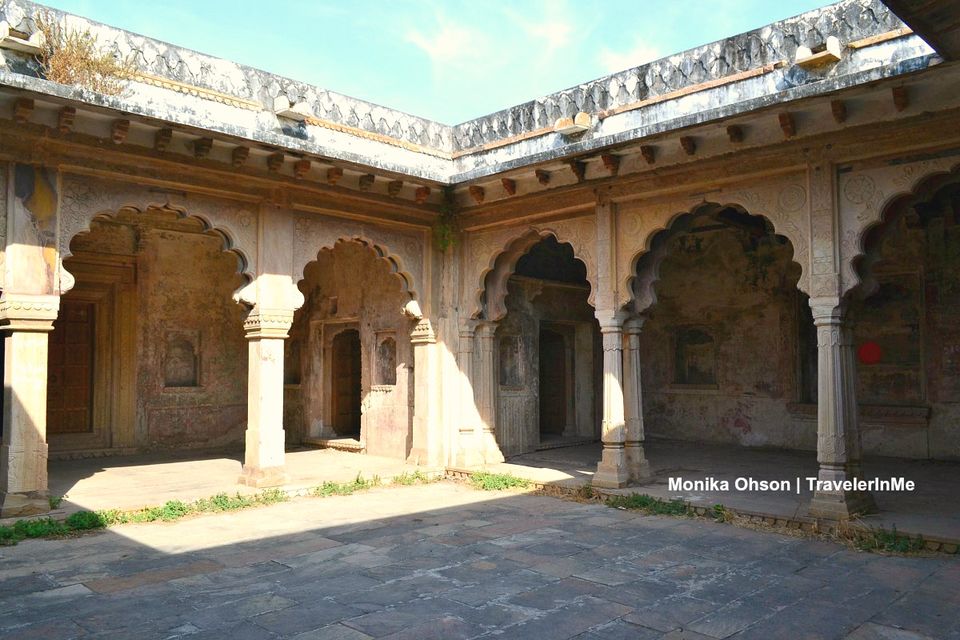
The fort is said to house the following; Naqqar Khana, Barood Khana, Taksaal, Diwan-i-Khas, Diwan-i-Aam, Madhusudan Mandir, Rang Mahal … With lack of any information about the fort and no guide it was not possible to identify them. Also, with work happening, there were certain sections which were off the visit range.
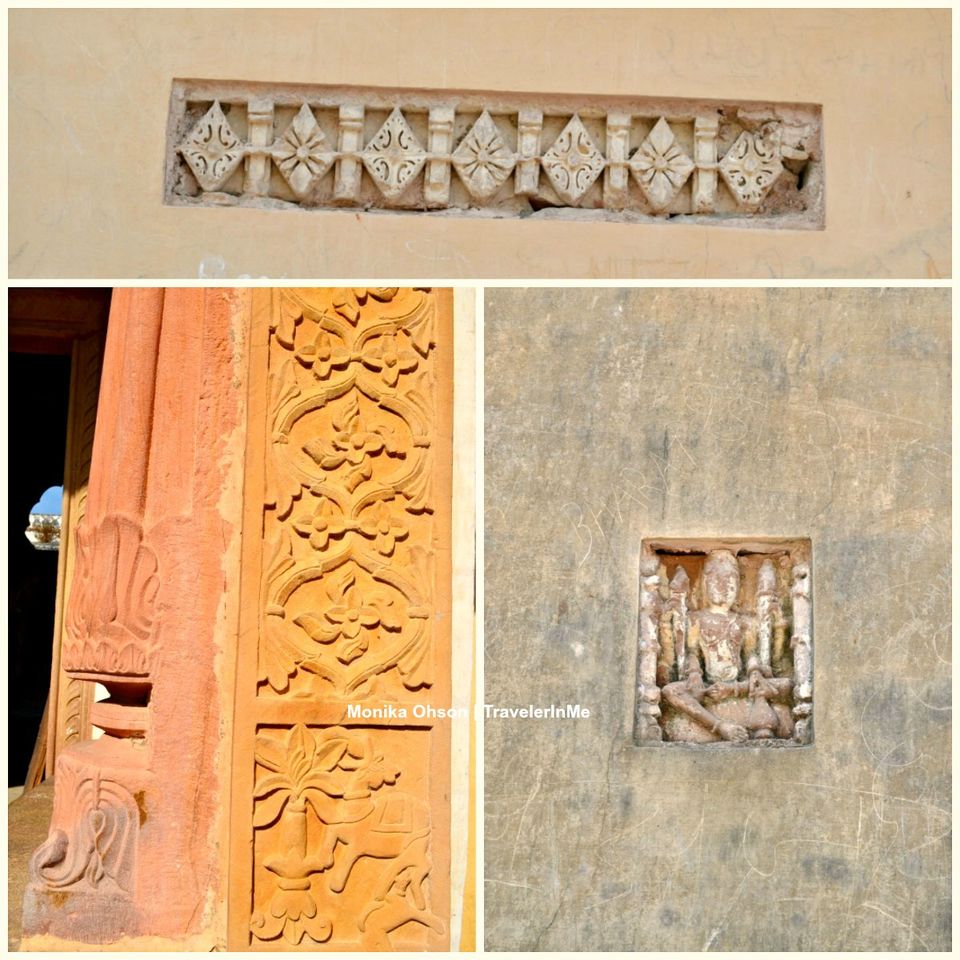
We walked further through the probable Ganesh Pol and next to it we saw a functional temple. This route led us to another set of structure probably housing the Rang Mahal, Diwan-i-Aam and Diwan-i-Khas. There were two similar massive courtyards surrounded by arched shelters connected through a door. One of them also housed a small enclosure which looked liked a kitchen with tandoor and place for storage. Another one was double storied and housed a beautiful arched jharokha.
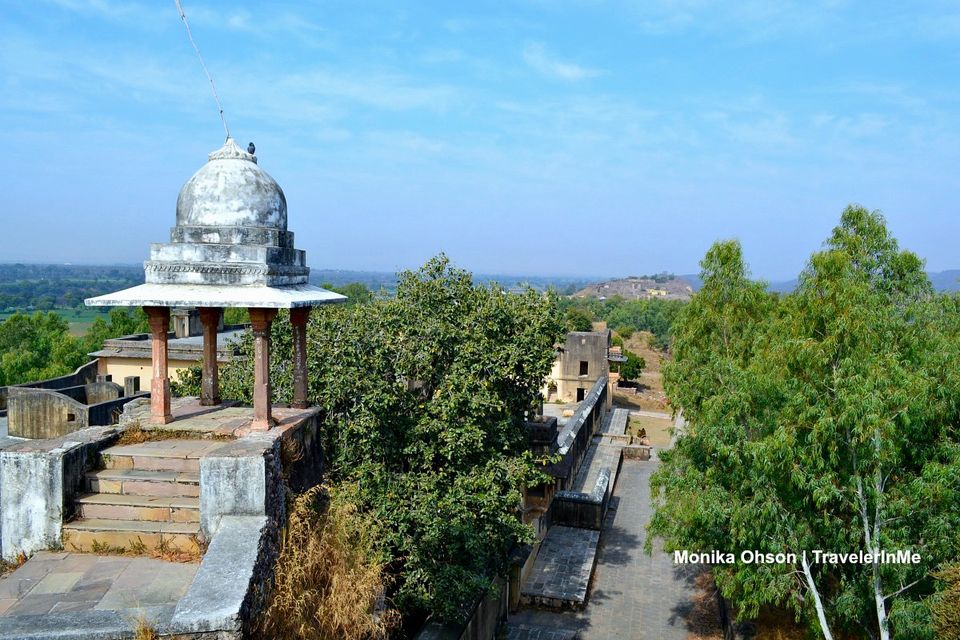
.
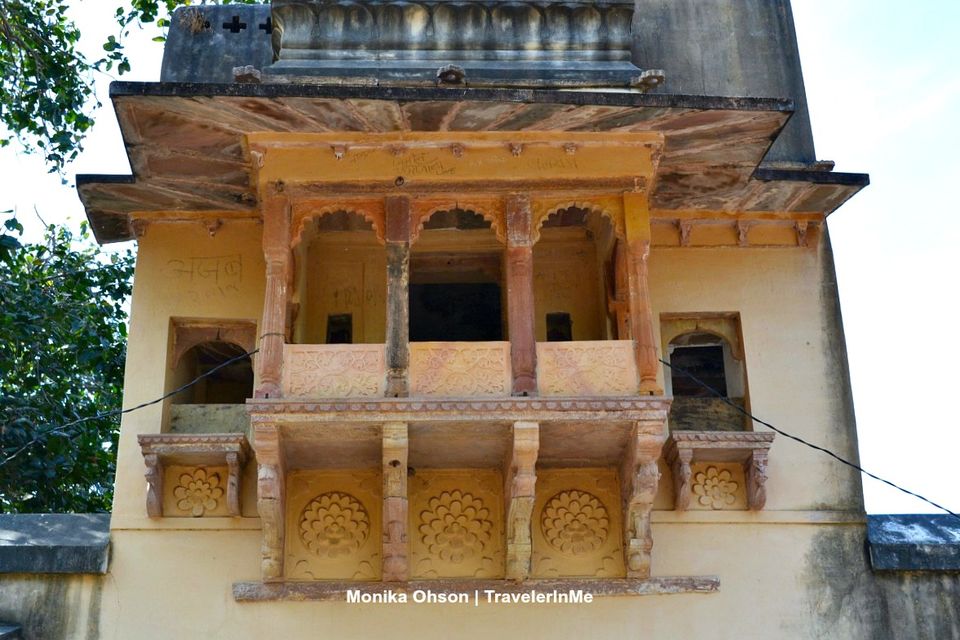
.
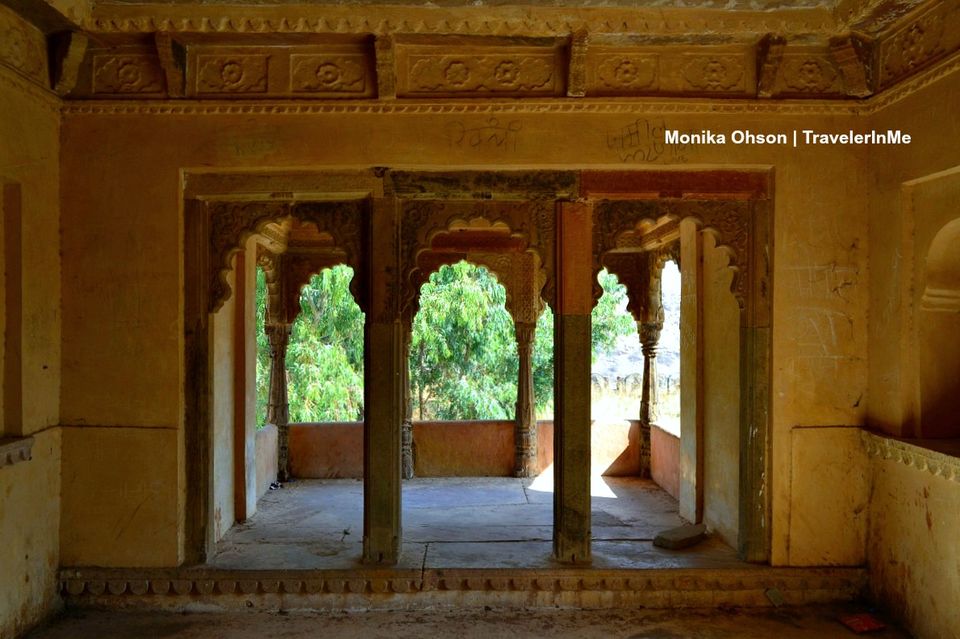
.
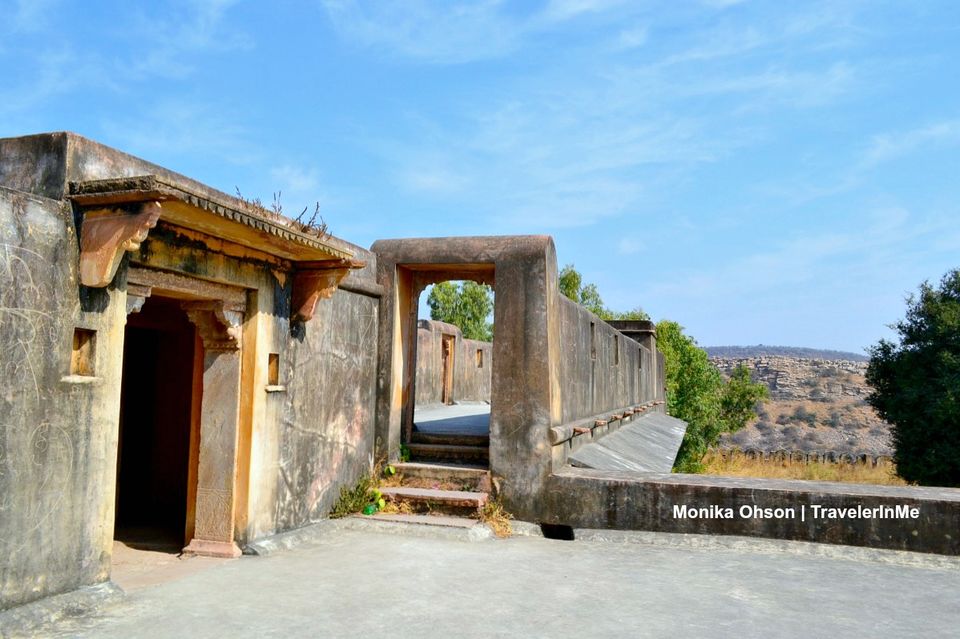
.
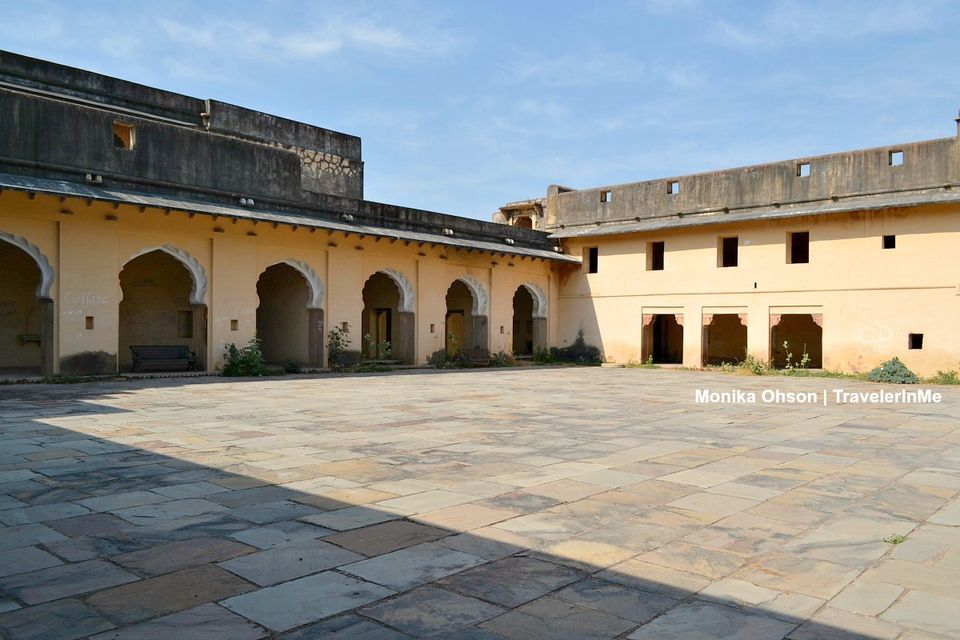
.
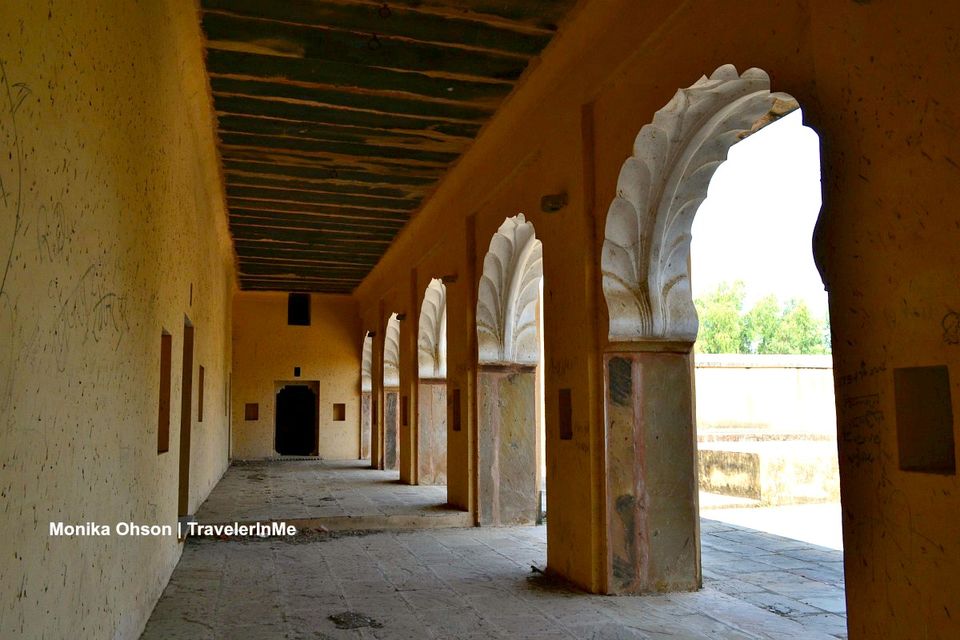
.
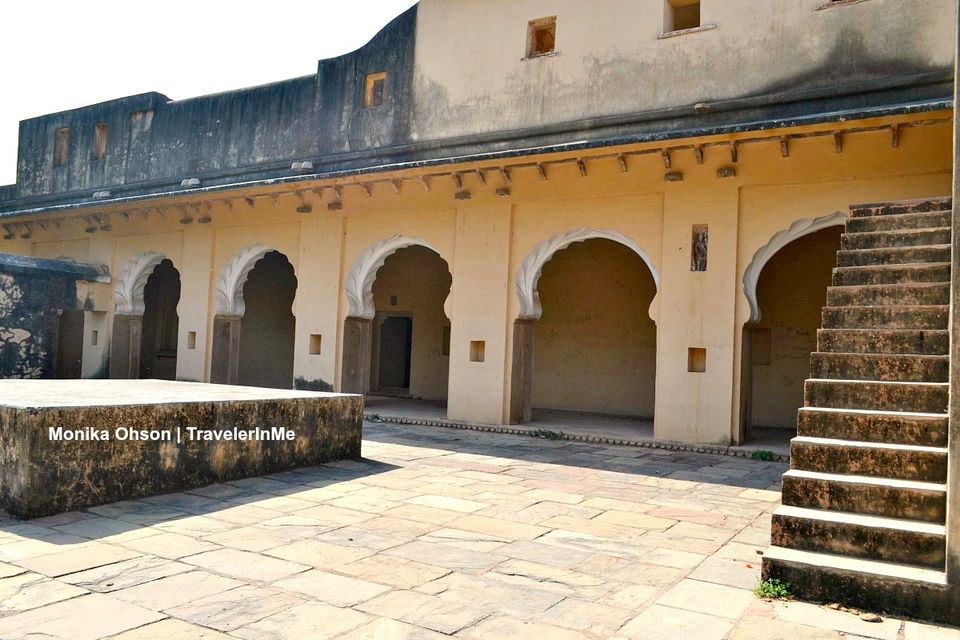
Sharing some interesting folk tales surrounding the jaldurg (waterfort) ….
The bed of Raja Achaldas Khinchi for some reason was never touched by any of the Muslim or Rajput rulers. As per folk tales every night the spirit Raja Achal used to come to its bed and people even heard the sound of hookah. The bed remained in its original place and unused until 1950. No one knows where it is now, though the probability of it being used & taken away by the illegal occupants is high.
An ADC once tried to take the sword of Raja Achal Khinchi out of the fort. He apparently had to abandon it on the way as it was extremely heavy. The sword now lies guarded in the Jhalawar PS.
The fort has many parrots and peacocks . These Hiraman parrots born in Ram Burj of the fort are considered to be twice in size of the normal parrots, with deeper hues and can mimic human speech very well.
That’s all that we could gauge or get to know about the fort during our visit. Hopefully with time we will have a better information about the fort and its structures.
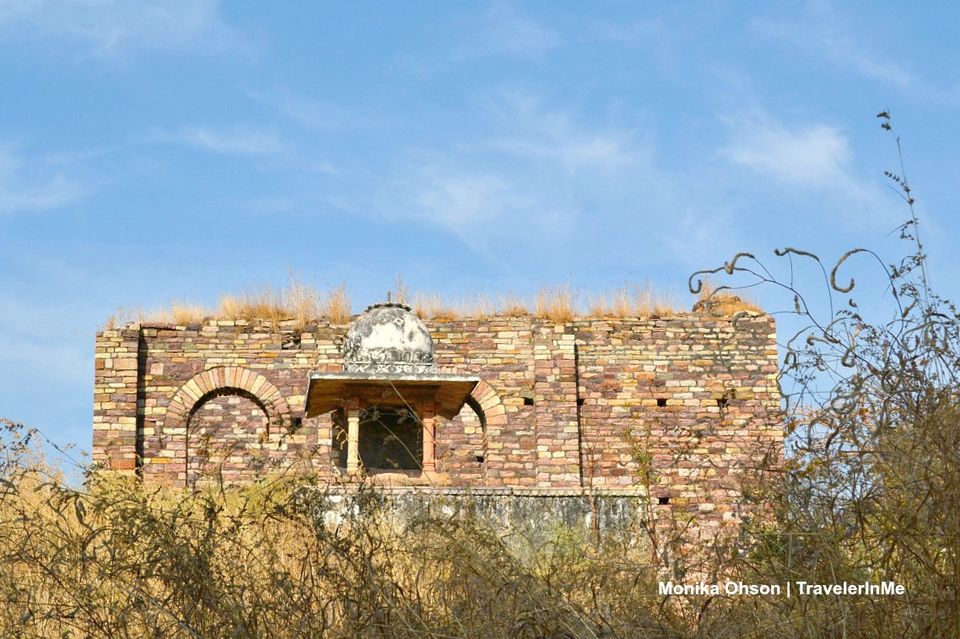
The Dargah of Sufi saint Mitthe Shah is situated outside the fort. The monastery of Sant Pipa, a contemporary of Sant Kabeer is also situated nearby.
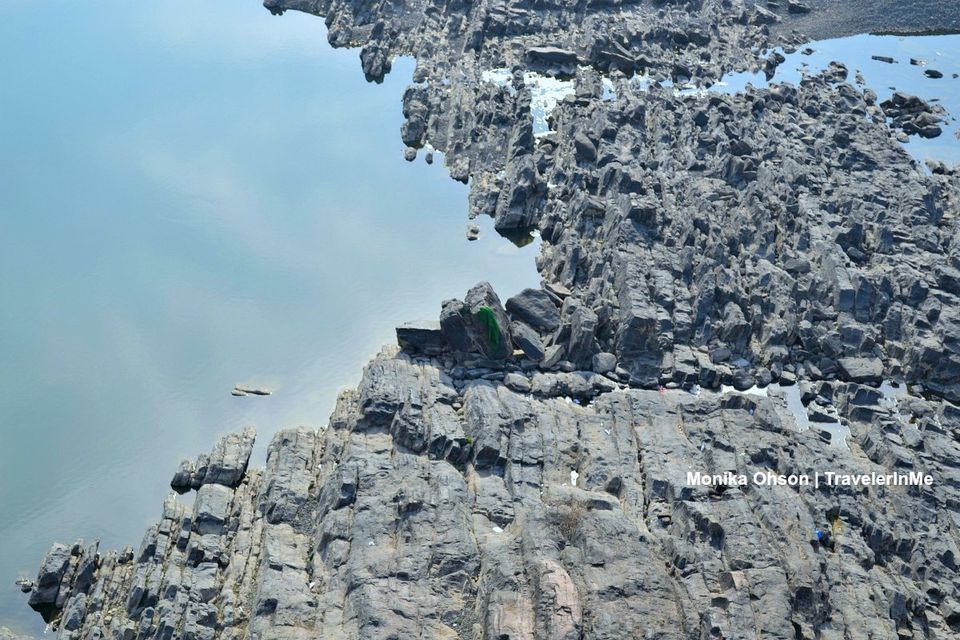
The land around the fort are a vast expanse of productive alluvial plains of the river basin.
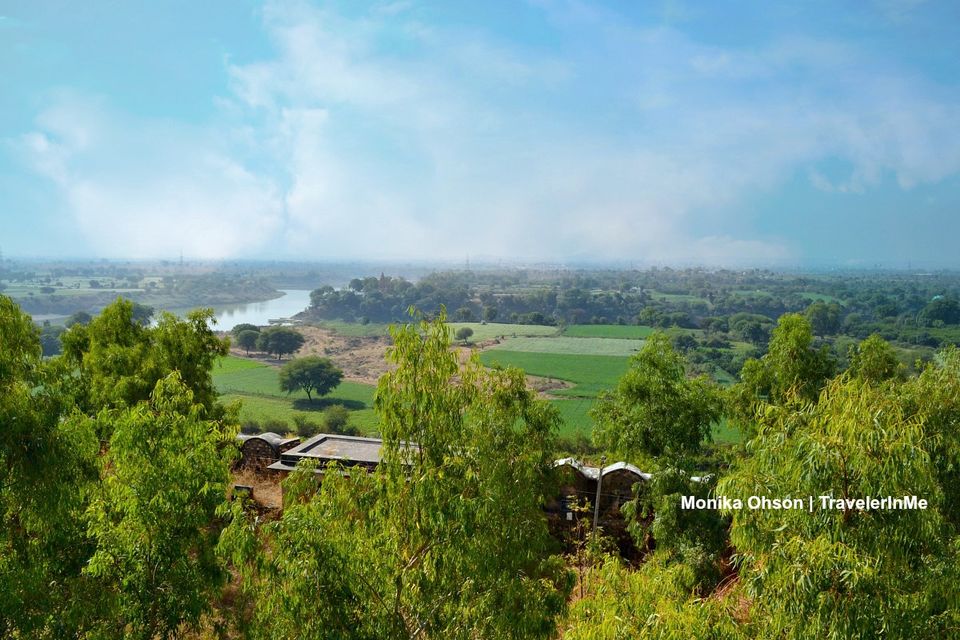
We spent a good time exploring the fort that is massive and far, far away from the tourist bustle. I am sure it will soon find place in the tourism circuit of Rajasthan …… till then the allure of the unexplored shall remain.
If one is okay with the on & off bad patches in the road to the fort, its a sight to behold during monsoon. The rivers are full and one can see the “Jal Durg” true to its name.
This winter do plan a trip to Bundi & Jhalawar. It’s a joy exploring the less to unexplored places, isn’t it? :-)
.
...and, if you like what you just read, do ‘like it’ & ‘share it’. Also do not forget to ‘follow' to remain updated about newer posts!
HAPPY TRAVELLING!
Monika Ohson / TravelerInMe
This was first published in TravelerInMe
.
P.S. I had to do a lot of reference work to be able to identify portions of the fort complex. Unfortunately there is practically nothing about the fort structure, so I have used the word ‘probable’ & ‘maybe’ frequently. If anyone for sure knows the fort can help correct wherever erred. Though I hope the photographs will help visualize the fort & its complex!



